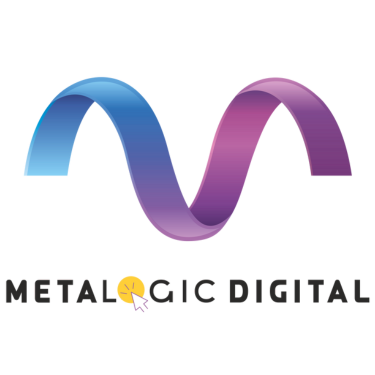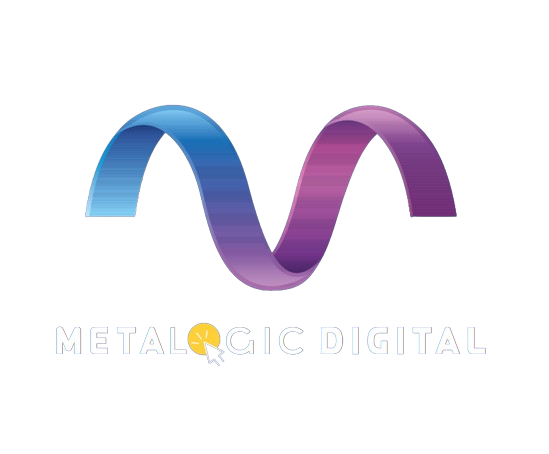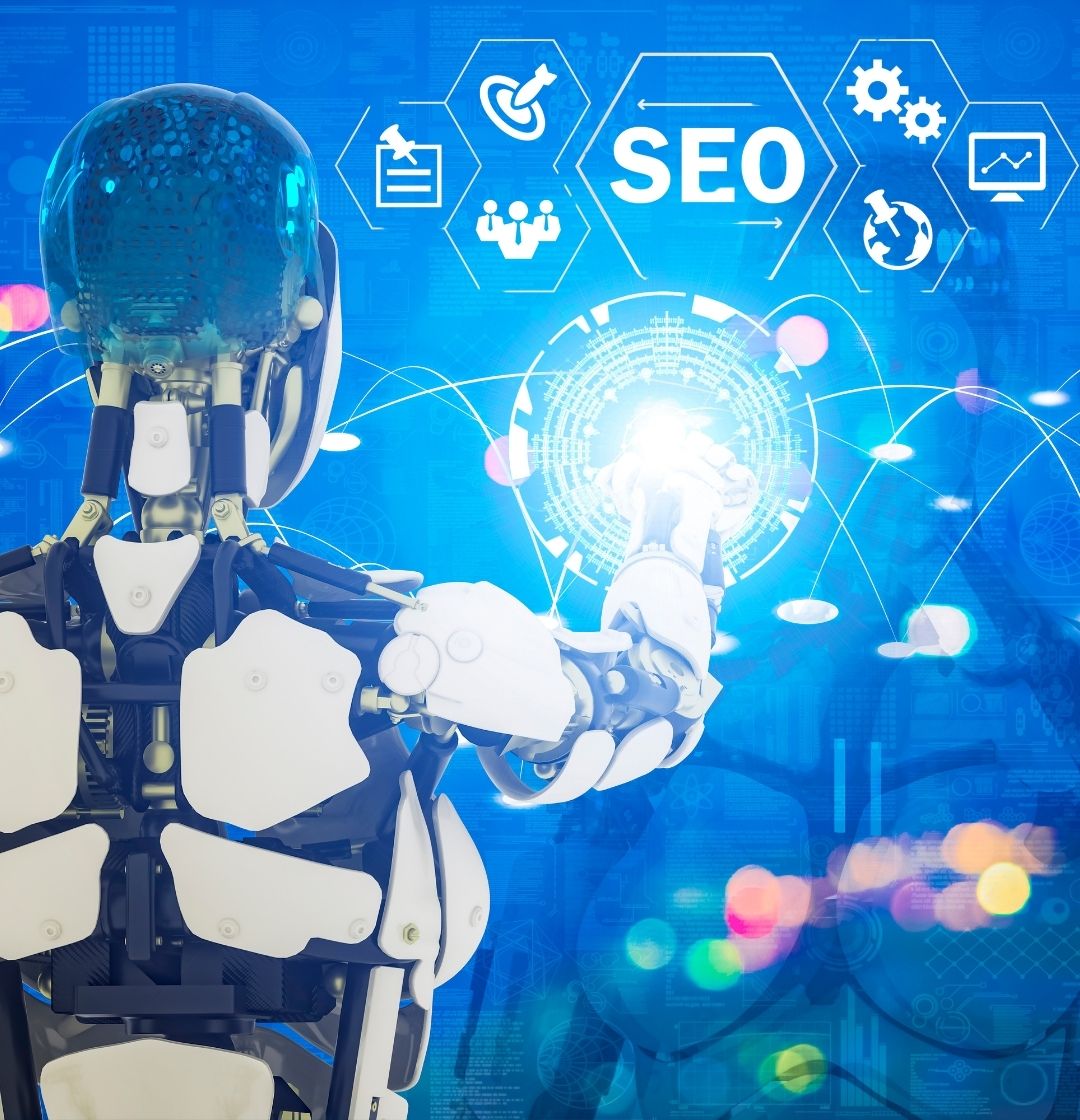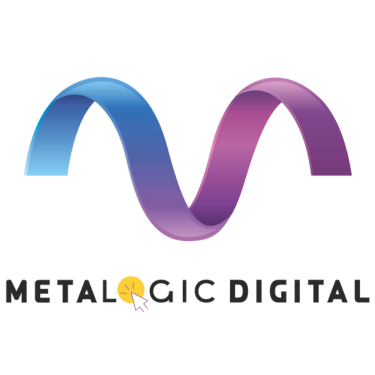AI Meets SEO: How Machine Learning Shapes Digital Success
Search Engine Optimization (SEO) has reached a stage where the old methods of stuffing keywords and manual backlinking will no longer bring results. Rather, machine learning (ML), a dynamic branch of artificial intelligence, is transforming the concept of SEO by allowing systems to learn, evolve and increasingly make accurate predictions. RankBrain, BERT, and MUM are examples of how ML drives the search engines to understand their purpose, context, and content quality.
The application of ML in the field of SEO is associated with more advantages than ever before: scalable information, effective automation, and predictive intelligence. This blog unpacks how ML reshapes SEO through various technical mechanisms and strategies, supported by authoritative sources and practical applications. We’ll close with an impactful case study and showcase how MetaLogic Digital helps businesses harness this transformation.
What is Machine Learning in SEO?
Machine learning also enables algorithms to be trained on large datasets, including search queries, user behaviour, and engagement metrics, and to improve over time without explicit programming. ML enables search engines to:
- Understand the intent of the user behind queries.
- Forecast search behaviour and recommend high-potential keywords.
- Assess engagement metrics, including dwell time, click-through rates, and bounce rates.
- Automatically audit technical problems such as crawl errors, page speed and structured data gaps.
ML drives an evolution of reactive rule-based SEO to proactive, data-driven optimisation that delivers scalable precision and adaptability.
Deep Learning: Enhancing Comprehension and Relevance
Deep learning, a branch of ML employing artificial neural networks, significantly advances SEO by:
- Utilising Natural Language Processing (NLP) to comprehend the context, semantics, and nuances in search queries and content.
- Employing Convolutional Neural Networks (CNNs) for image interpretation and enhancing SEO via image and performance optimisation.
In tools like Market Brew, deep learning models analyse page structure, topic clusters, and user behaviour to pinpoint optimisation gaps and improve ranking accuracy.
Six Key Applications of Machine Learning in SEO
Machine Learning (ML) continues to change the SEO environment. ML enables marketers to perfect strategies, optimise content and predict search direction with unprecedented precision by the use of advanced algorithms and forecasts. These are six primary uses of ML in SEO, according to SEO Leverage and industry trends.
1. Optimised Keyword Research & Selection
Any SEO strategy is built on keyword research, and ML takes it several steps further. Keywords analysis may be overlooked to expose some hidden patterns or trends. ML-based tools, in their turn, scan large sets of data to:
- Find high-volume, low competition keywords which can be targeted.
- Identify the long-tail queries that are usually not identified and which are highly convertible.
- Interpret search intent indicators, distinguishing between informational, transactional or navigational intent.
- Spot emerging trends in search behaviour before they become mainstream, giving brands a competitive edge.
- Continuously update keyword suggestions as search behaviour evolves.
As an example, an e-commerce brand with ML will detect a keyword trend such as ecofriendly running shoes 2026, a few weeks ahead of competitors, creating content early and capturing traffic before competitors.
2. Optimised On-Page SEO
On-page optimisation does not mean sprinkling keywords. The actionable insights that are provided by ML tools enhance the technical and UX elements of a page. Key capabilities include:
- Title tags and meta descriptions: ML predicts the phrasing more likely to improve the click-through rates.
- Headings and internal navigation: ML checks the form of the content so that it has a logical hierarchy and is discoverable.
- Image ALT text optimisation: ML identifies image content to propose descriptive ALT attributes with SEO considerations.
- Performance and user experience indicators: ML identifies pages that are slow to load, mobile responsiveness, and navigation friction.
- Automated guidelines: The tools may indicate layout adjustments or reorganising the content to optimise user interactions and dwell time.
With the assistance of ML, SEO experts can build either user-friendly or algorithmically optimised pages to make both search engines and users react favourably.
3. Creation and Optimisation of content.
Content is still king, and ML assists in making sure that content is intelligently created, highly relevant and optimised to make conversions. High-tech methods are:
- Automated content proposals: ML finds the gaps in current content and suggests the topics to fill them.
- Natural Language Processing (NLP): ML involves analysing semantic relationships to propose improvements, contextualising the content.
- Personalisation: ML provides content suggestions to various groups of people, which makes them more engaging.
- A/B testing: ML measures the effectiveness of headlines, CTAs, or formats and optimises content continuously.
ML helps brands create data-driven content strategies to reduce guesswork and enhance search visibility and user engagement.
4. Predictive Keyword & Traffic Analysis
Instead of reacting to traffic drops or trends, ML enables proactive SEO planning. Predictive analytics can enable:
- Predicting the keywords that tend to take off over the foreseeable future.
- Anticipating the change of seasons or new issues in specific sectors.
- Focusing on SEO activities by estimating ROI, and prioritising strategies that are most likely to generate the highest traffic and conversion
- Examining past data and competitor activity to predict traffic change.
As an example, a travel agency may realise that the term space tourism is on the increase and can begin preparing the content and campaigns without necessarily waiting until the competitors have dominated the search results.
5. Automated Technical SEO Audits
Technical SEO is crucial but often time-consuming. ML simplifies this by:
- Crawling websites continuously to detect duplicate content, broken links, and blocked pages.
- Analysing structured data and schema markup for errors.
- Identifying indexing and crawl issues before they impact rankings.
- Highlighting site speed and mobile usability problems, which are major ranking factors.
- Providing actionable insights and prioritising fixes defined by possible ranking influence.
When auditing using ML, companies can ensure optimal health of their sites, decrease technical failures, and prevent unnecessary loss in rankings.
6. Backlink Quality Analysis SERP Forecasting.
The value of backlinks is diverse, and still, it serves as an essential ranking parameter. ML assists in:
- Measuring the quality of the links based on domain authority, relevance and trustworthiness.
- Predicting which linking opportunities are likely to impact rankings positively.
- Forecasting SERP changes by analysing historical ranking data, competitor activity, and algorithmic patterns.
- Helping marketers refine link-building strategies by prioritising high-impact opportunities and avoiding risky or spammy links.
ML transforms backlink strategy from a manual, reactive process to a data-driven, predictive approach, reducing wasted effort and improving ROI.
New Trends: Zero-Click Search and Programmatic SEO.
The AI and ML-based programmatic SEO helps brands to generate high-volume landing pages that match specific long-tail keywords and do so quickly. For instance, DelightChat generated 300+ custom pages in a week, and Anthropic drove a 671% traffic increase via 3,264 optimised pages.
At the same time, AI-driven search behaviours like zero-click queries and generative answers are shifting traffic away from traditional websites. Marketers now focus on Generative Engine Optimisation (GEO) and Answer Engine Optimisation (AEO) to ensure algorithms like ChatGPT and Gemini represent brands accurately and effectively.
Case Study: Niche Hat Brand – 3X Surge in Organic Traffic
A fashion e-commerce brand specialising in niche clothing and stylish hats had problems with low visibility and positioning. With the implementation of a machine learning-based approach to SEO, such as predictive keyword targeting, structured data, and intelligent content optimisation, the brand experienced growth in organic traffic of almost 3X (29,551 to 88,516). Visibility of the key-words improved: The number of rankings on the Top-3 list grew by 407 to 1,158, and the number of the top-100 list positions grew by 1,017 to 2,506.


Future Outlook: Machine Learning, UX, and Profit-Oriented SEO
As SEO continues to evolve, the focus is shifting from purely technical optimisation and keyword rankings to user experience, AI-driven relevance, and profitability-focused strategies. Machine Learning (ML) will be at the heart of this transformation, enabling marketers to anticipate trends, personalise experiences, and measure actual business value.
1. User-Centric Ranking Signals
SEO is becoming more user-driven in the future. Old indicators, such as keyword density or backlinks, are being replaced by indicators that reflect actual interaction and satisfaction:
- Dwell Time: The length of time users spend on a page, indicating the relevance of the content.
- Interactivity: Numbers like clicks, depth of scroll and CTA interaction emphasise usability and engagement.
- Satisfaction: ML predicts content satisfaction based on behaviour patterns and feedback.
Optimisation in these signals enables brands to achieve better rankings and a more positive customer experience. The more users are engaged, the more the positive feedback loop will generate SEO success.
2. AI-First Indexing
Engineer Search engines are shifting to AI-first indexing, where machines learn which content to rank highly using machine learning models instead of the fixed and immobile algorithms:
- ML analyses context, semantics and intent, and not just keywords.
- It enables ongoing learning, changing to new content formats, user behaviours and search trends.
- Traditional rules, such as keyword prominence, are becoming secondary to content quality, relevance, and engagement.
This shift requires marketers to think like AI, creating content that communicates intent clearly, solves user problems, and aligns with search patterns that ML identifies as valuable.
3. Conversational, Hyper-Personalised and Voice Search.
Search is becoming personal. ML allows search engines to think contextually and at an acceptable level of detail:
- Hyper-Personalised Search: Results are displayed in a manner specific to the user in terms of location, behaviour and past interactions.
- Voice Search: It is becoming more and more popular with intelligent assistants and requires content to be both conversational and intent-driven.
- Conversational AI Search: Users expect seamless, natural dialogue with search engines, having an impact on query interpretation and ranking.
ML-powered optimisation allows the brand to anticipate user intent, organise content to respond to natural language queries and achieve traffic on new search formats.
4. Profit-Oriented KPIs
The future of SEO is moving beyond traffic and visibility metrics toward profit-driven performance indicators:
- ML models do not estimate the cash worth of organic traffic, and only page views or rankings.
- SEO metrics are quantified in terms of conversions, customer lifetime value and ROI and not in terms of vanity.
- Predictive analytics enables marketers to focus their activities on high-value keywords and content so that each SEO move becomes profitable.
This will ensure that SEO is more about business performance, so it is a strategic driver of growth and not a marketing strategy.
How MetaLogic Digital Assists Companies in Embracing Machine learning in SEO
At MetaLogic Digital, we assist businesses in realising the true potential of machine learning in SEO. We combine advanced AI with human experience to achieve measurable long-term growth. We help our clients in the following ways:
- Predictive SEO Strategy: We utilise ML-based insights to identify lucrative keywords, predict ranking opportunities, and discover untapped niches.
- Content Intelligence: With advanced ML solutions, we analyse competitors, optimise content based on semantic depth, and develop topical authority.
- ML Precision Technical SEO: site speed, structured data, and more: Technical foundations are peak-perfect with the help of ML-powered audits.
- Profitability Focus: In addition to traffic and rankings, we monitor predictive profitability indicators to maintain a focus on the SEO business, rather than just visibility.
With MetaLogic Digital, companies do not merely stay abreast of the trends in SEO; they are ahead of them.
Conclusion
Machine learning is now deeply ingrained in SEO, propelling improved ranking logic, enhanced efficiency, and forward-looking approaches. Whether it’s deep learning understanding, programmatic page generation, or AI-first search visibility, ML enables brands to grow with scalability and vision.
The 3X growth of the niche hat brand is a good example of the transformative power of ML. Machine learning enables systems to acquire transformative power. Whether your goal is traffic, ROI, or market leadership, MetaLogic Digital stands ready to guide your SEO strategy into the next frontier.
Frequently Asked Questions

Machine learning enables systems to learn. In contrast, deep learning utilises complex neural networks (such as NLP or CNN-based) to comprehend language, semantics, and media, facilitating more nuanced analysis and intelligent ranking.
Programmatic SEO automates large-scale landing page creation using ML templates and keyword data—enabling fast, scalable optimisation for long-tail phrases versus manual, individual page crafting.
AI summaries reduce clicks to websites, making technical optimisation (fast load speeds, structured data) and visibility in GEO/AEO critical. Marketers must optimise for bot-readability, not just humans.
Monitor organic traffic, keyword ranking gains, click-through, engagement metrics (dwell time, bounce rate), backlink quality, and ML-driven forecasts of ROI and SERP performance.





